Dr. Randy C. Dockens has a fascination with science and with the Bible, holds Ph.D. degrees in both areas, and is a man not only of faith and science, but also of creativity. He believes that faith and science go hand in hand without being enemies of each other.
After completing his bachelor’s degree in pharmacy from Auburn University he went on to graduate school at Auburn and completed his first doctorate degree in Pharmaceutics. He began his scientific career as a pharmacokinetic reviewer for the Food and Drug Administration and later joined a leading pharmaceutical company as a pharmacokineticist, which is a scientist who analyzes how the human body affects drugs after they have been administered (i.e, absorbed, distributed, metabolized, and excreted).
Through the years, he has worked on potential medicines within several disease areas, including cardiovascular, fibrosis, and immunoscience to seek and develop new and novel medicines in these therapy areas.
He has also had his attention on the academic study of the Bible. He earned a second doctorate in Biblical Prophecy from Louisiana Baptist University after receiving a master’s degree in Jewish Studies from the Internet Bible Institute under the tutelage of Dr. Robert Congdon.
Randy has recently retired from his pharmaceutical career and is spending even more time on his writing efforts. He has written several books that span dystopian (The Coded Message Trilogy), end-time prophecy (Stele Prophecy Pentalogy), science fiction (Erabon Prophecy Trilogy), and uniquely told Bible stories (The Adversary Chronicles). All his books, while fun to read, are futuristic, filled with science to give them an authentic feel, have a science fiction feel to them, and allows one to learn some aspect of Biblical truth one may not have thought about before. This is all done in a fast-paced action format that is both entertaining and provides a fun read for his readers.
He has also written some nonfiction books as well. One is to show how all humans are connected from God’s viewpoint by looking at biblical prophecy (Why is a Gentile World Tied to a Jewish Timeline?: The Question Everyone Should Ask). This book shows how all scripture is connected and inclusive of everyone. In addition, he and his editor have written two books about writing. The first is on writing techniques themselves and is entitled Mastering the ABCs of Excellent Writing: Creating Vivid and Colorful Stories that Readers Want to Read. This book not only addresses the techniques of writing, but what makes writing unique to each author. It conveys not only how to better hone one’s craft of writing but also the brand an author wants to portray. This helps an author make their writing unique as well as captivating for his/her audience. The second is a companion book to this one entitled Mastering the ABCs of Excellent Self-Editing: Framing Your Colorful Masterpiece to Keep Readers Engaged in Your Story. This is best used in conjunction with the first one. Yet, self-editing, though intricately connected to writing, is a distinct event. The better the quality of a writer’s draft manuscript when it is delivered to one’s editor, the higher the final quality of the manuscript will be for readers, and that is extremely important.
Dr Dockens is still not done. He has other creative ideas he is bringing forward as he is currently working on two new futuristic series. So, stay turned!
Website ➜ https://www.randydockens.com/X ➜ https://x.com/RandyCDockens
Facebook ➜ www.facebook.com/Randy.C.Dockens
Instagram ➜ https://www.instagram.com/randydockens
Goodreads ➜ https://www.goodreads.com/author/show/16453941
Can you tell us about your latest series, Stele Prophecy Pentalogy?
This five-book series is a presentation of five stories during what biblical prophecy says will be a time when a Messiah will come to this Earth and reign. This series also calls this period the Refreshing because things are made new: those who were righteous have been resurrected, all pollution generating machinery and factories are eliminated, and all disease and death have been abolished. This is a one-thousand-year reign of the Messiah where he will reign as King of kings over the earth with his base of operation in Jerusalem, Israel. All my novels in this series are connected to each other but can also be read separately. Because death has been rescinded during this time, except for those who rebel against the King, characters within the story of one book can still be part of the storyline of the next book even if the storyline of each book is separated by several hundred years. The main characters in one book become the supporting characters in the other books.
This explanation doesn’t let you know why I chose this period to be the backdrop for my novels in this series. So, let me now explain one of the main purposes for the genesis of this series. There are certain aspects unique to this future time and I want readers to understand the why behind these elements Scripture is telling us concerning this future kingdom. Let me elaborate.
In my first book, Mercy of the Iron Scepter, I wanted people to experience the wonder of this kingdom with all the peacefulness, beauty, and unity that will exist during this time. In Scripture, it talks about this Messiah, this King, to reign with an iron scepter. That means he will deal harshly with the sin of rebellion. So, I show what that looks like, but also show that there is a merciful side to this harshness as well. While the King deals immediately and decisively with rebellion, he is also loving and wants the best for his citizens of the world. I show that side of him in this novel as well.
In contrast to this utopian time is its precursor which Scripture calls the Tribulation Period, a time of chaos and all sorts of calamities—an apocalypse of sorts. Promised Kingdom takes the reader through this time and what it might be like to live through such an ordeal.
Another thing many are confused about is that sacrifices will be made again during this time of a future kingdom. As most Christians believe, Jesus Christ came as the promised Messiah the first time he came to earth fulfilling the Law of Moses and became the sacrifice that the Mosaic Law required for the redemption of mankind. Therefore, today, we no longer have sacrifices. So, what would make them needed in our future? My novel, Hope Renewed, talks about this as one goes through the adventure with Ya’akov and the decisions he makes about his destiny.
Another aspect to this future time is that someone named the Prince is introduced in the book of Ezekiel in Scripture. There are various beliefs as to who this person is. Through my book, Darkness in the Light, as one goes through the struggles with Me’ira, one will see that this Prince is not the Messiah and is not King David as some purport. This novel gives a reason for him being a separate individual from these and what his duties will be for the citizens of the world during this future time.
Then there is the aspect of dealing with human depravity. While this is a time of peace, harmony, and wonderment, there will be those who are still not satisfied with the status quo. I want people to understand that while we have dark spiritual forces today that make us do bad and evil things, even when those forces are held at bay (which will be true during this future time), the heart of mankind can still be evil and against God. People born during this time still need a Savior and their decisions, just like ours today, can have eternal consequences. As readers go through the storyline of Janet in Iron in the Scepter, we cheer her on to make the right decisions even though deep down we know she likely will not. It is similar to when we knew Anakin Skywalker would turn into Darth Vader, yet we kept hoping that he would not make those fateful decisions that we knew he was going to make.
Rather than present all this in a nonfiction format, I thought it would be more interesting to create relatable stories that readers can identify with and have the “learning” be in the background of these fictional stories. While the stories are unique to this time period of our future history in regard to what technology is utilized and how some spiritual beings are now visible, these stories are quite relatable to us today as these characters must still go through many of the same struggles and challenges we face in our day-to-day lives. I think this gives the stories a relatability to readers that otherwise would not be there. I believe people are people no matter in what time and era they live. Let me explain what each main character is going through so you can see just how relatable they will be with readers.
In Mercy of the Iron Scepter, the main character, Kalem, is struggling with the loss of his older brother, Peter, as he was taken by the King due to his rebellion. This event proved tragic for Kalem as he was relatively young when this occurred and caused him to have a deep animosity for the King. He determined that once he got older, he would prove to everyone that the King was unjust and not legitimate. Yet, once he becomes older, through a series of circumstances, he meets and falls in love with Angela, a woman who is supposedly the key to a future prophecy about the King. Kalem must now decide which prophecy is actually true: the king is false and unjust and will fall to the one prophesied to be the Overtaker, or the King is the one who will bring everyone into an even more wonderful future. Kalem’s struggle is one we all face in one way or the other as tragic circumstances often blind us to certain realities we must face. Kalem must decide whether the heartache for his brother is what is preventing him from seeing the truth that Angela is trying to get him to see.
In Promised Kingdom, a backstory is given for a couple of the characters presented in Mercy of the Iron Scepter and presents how the time of Refreshing came about. The character Edvin is wanting to get into Swedish Special Forces and prove to his to-be father-in-law that he is deserving of the man’s daughter as his wife. Yet, before that occurs, she is killed in a plane crash at the same time as all children of the world and many adults just vanish without a trace, throwing the world’s population into chaos. Edvin then gets selected for a special mission where he is to guard the rising political leader who is touted to be able to rise above the chaos and make the world a better place. Edvin finds significance in his role but soon learns that the one he is protecting is actually the one who will bring the world into a prophesied apocalypse. Once he understands this, he has many decisions to make which will have ripple effects on many others he cares about. Our decisions also have ripple effects—some good, some not.
In Hope Renewed, Ya’akov becomes the first one born into this new kingdom that arises out of the chaos present on the earth when the Messiah returns and becomes its King. Ya’akov is prophesied to become the first priest in this new kingdom. Yet, when he is old enough to become a priest, he is unsure if that is the destiny he desires. He goes on an adventure which leads him into circumstances that make him lose his memory. In such a state, through the help of Hadassah, a woman he at first admires but then comes to love, he discovers his true longing in life is indeed tied to his prophesied destiny and now realizes how to make a difference in the lives of others he had never considered before. Don’t we all desire to make a difference?
In Darkness in the Light, Me’ira is the daughter of Jeremiah, the Prince who is the one who leads the world subjects in the worship of their King. As a princess, she is bound to certain protocols of conduct, but she is high spirited and feels these rules are too confining. Against protocol, she falls in love with Galen who is not of royal birth and is tied to a group of people who are against the king. She must make a decision whether to go against protocol and marry Galen by relinquishing her royal status and be separated from her parents or go with protocol and say no to the man she loves dearly. Her decision has consequences she did not foresee. We all make decisions that have unforeseen consequences.
In Iron in the Scepter, Janet is a commodities analyst who helps improve the distribution of food crops by increasing the efficiency of local transporters between the transport of people and crops. She develops an animosity for the King as she feels he is not supportive of her work and is devoid of rational thought. When she hears about an Overtaker who is supposed to come and overthrow the King and allow people to think however they wish, she is all in. Yet, pride blinds her to what is truly important, and she seems willing to sacrifice her own family to bring in the reign of this Overtaker. Her youngest son, Kalem, is the same as the main character in Mercy of the Iron Scepter. Unfortunately, if we are not careful we, too, can get so fixated on one aspect in our lives that we then miss the overall big picture.
I know this was a long answer to your question, but I wanted to explain how this series is a layered presentation to readers. The stories are full of adventure, mystery, and romance in a futuristic setting. If that is all a reader wants out of the story, then it’s there. Yet for those who want to understand more about this future time and what occurs behind the scenes on a daily basis, that is also there. I think readers will be able to identify with the struggles of each character because we struggle with those same concerns and emotions today as well. Reading this series is a way to enjoy a story but learn at the same time without realizing you are actually learning something you may not have known.
I know with that many books, this is going to be a hard question, but what do you think is your favorite part of the series?
When I finished my draft of Mercy of the Iron Scepter, I had a good friend who was very literary minded read it. She gave me some very good feedback. In one of her responses, she said that when Kalem visited Jerusalem (although not on his own volition), he was there for quite some time, but I had not really stated what was going on within the city itself, so could I give a little description of his experience while in the city. This then led to me writing a chapter that has become one of my favorite ones. I have put it here for you to reference. It isn’t long, so I hope this is okay. I think it gives readers a good idea as to what this future time will be like and how it contrasts to our current world.
Kalem spent the days up to the sacrificing and honoring ceremony sight-seeing, thinking, and mulling over everything that had happened. Franklin had been correct. Everywhere he went amazed him, and looked beautiful. Park-like areas speckled the city—some large, most small, some with fountains, some with sculptures, but all with some tribute to the King. Was mom right? Was the King really egocentric?
But the people. With such an influx of visitors coming into the city each day leading up to the honoring ceremony, Kalem expected people to get irritated and less polite. Yet, the opposite occurred. As he walked through the city, people seemed to be happier, more energized, and more willing to be helpful. Almost like . . . like this was their calling, their mission in life, to make others feel welcome. It made Kalem think. Did he have a mission in life? Was his mission to follow in Peter’s footsteps, to understand what important fact he had uncovered? It gnawed at him. Yet, he didn’t feel the happiness others around him had. Inside him swelled a compelling need to complete his mission, but could he refer to it as a calling? Was there a difference? As he passed by hundreds of people each day, he knew deep down there really was a difference.
He spent a couple of days, off and on, in the civic center watching the various people rehearse for the upcoming honoring ceremony. Soloists, duets, quartets, and even choirs and bands practiced. People rehearsed their roles in plays—some serious in nature portraying some characteristic of the King while others were comedic. Others rehearsed their recitations, whether poems or oratory. He observed various forms of artwork—both conventional and abstract: paintings, sculpture, mosaics, and even combinations of those art forms. Others performed artistic dances using light, water, illusion, and other theatric elements. Then others presented their scientific discoveries: new techniques developed or enhancements to others already developed, findings on the microscopic or subatomic level, and even findings from outer space. These were all in various arrays of being set up. Everyone scurried around getting everything ready. But, again, Kalem found them all to be joyous in what they were doing, and each went about admiring what each other had brought to the ceremony.
Kalem tried to process all of this carefully. His mother’s caution kept coming through his thoughts: beware of Jerusalem’s subtle brainwashing techniques. Kalem had to admit everyone here seemed genuine, but he knew he also had to be careful. Anyone here would say his brother had been wrong, but he knew otherwise. Could they all be brainwashed, though? Kalem shook his head as if to remove those thoughts. He had to know what Peter discovered before he could entertain any other ideas.
The day before the honoring ceremony, Kalem sat on a bench in the park just outside the Guest House where he stayed. He became lost in thought about all the things he had seen and heard since he arrived in Jerusalem. Could he accept any of it?
“Care to feed the birds?”
The voice startled him as he had not seen the woman sit on the bench next to him. He had never seen anyone like her. She looked . . . old. Her hair was silver, pulled back stylishly in a bun. While old, she still looked beautiful even though a small number of wrinkles were becoming evident. She held out a piece of bread toward him.
“Thank you.” He took the bread and tore off a small piece, tossing it on the ground near the birds she also fed.
“Here for the ceremony?”
“Sort of.”
The woman smiled and nodded.
Kalem glanced at her a few times. “What did you mean by that?”
The woman stopped feeding the birds momentarily, turned to him, and smiled. “I’ve seen many people with that same pensive look here for one of the ceremonies.”
“What look?” He didn’t want to sound defensive, but knew it came out that way.
The woman chuckled. “People come for various reasons. Some because they are excited to come, some because their parents make them come, or because it is their territory’s turn to come, and a few because they are curious. Maybe yours is even for a different reason.”
Kalem shifted in his seat. Her last statement hit too close to home.
The woman continued. “It doesn’t matter why one comes.” She returned to feeding the birds. “It only matters how one leaves: the same or changed.”
Kalem sat back and thought about that statement. What did she really mean? Surely she didn’t mean being brainwashed, but he didn’t try to clarify. They sat in silence for a few minutes.
“I’m Lydia.” She held out her hand.
Kalem shook it and smiled. “Kalem.”
“So, Kalem, mind if I ask how old you are?”
“Twenty-two.”
Lydia chuckled. “Twenty-two. My, the world certainly looked different when I turned twenty-two.”
“You’re referring to the time before the Refreshing?”
She patted his knee, her eyes twinkling. “I can see you have a kind heart. Don’t worry, son. I know I’m old.” She smiled, waving her hand wide. “The world you see before you . . .” She made sure her gaze captured his. “. . . the one you see as ordinary, was science fiction to me when I was twenty-two.” She paused. “If I tell you of my world, it will seem science fiction to you, too.”
“So, how were things then?”
Her gaze went transfixed like she looked through everything to another time. “The world was still beautiful, but broken.”
“Broken?”
Lydia came out of her trance-like state and looked at him. “Yes, my child, broken. We still had blue skies, birds singing, and colorful flowers. Yet, we had war, famine, disease, and death.” She gave a slight smile. “I was old, even by pre-Refreshing standards, when the Refreshing came. I was eighty-eight.” She chuckled. “It was a miracle I even survived to the Refreshing. I had severe arthritis, was humped over with osteoporosis, and had emphysema. Walking and breathing were a chore.”
Kalem shook his head.
She patted his knee again. “I know . . . I know. It seems incomprehensible to you now.” She looked toward the lush valley in the distance. “What you see today came when the King returned.”
“What did he do?”
Lydia looked into his eyes. “Do?” She shook her head. “No, my child. Not do. Is. He is Life. The earth responded to his touch. Life came back to this planet. It had to respond to his touch.” She squeezed his knee slightly. “Just like we need to respond to his touch.”
Kalem sat there transfixed. Lydia had such conviction in her tone, her being. Could he believe so easily? “So, how did you respond to his touch?”
“You know, I can still remember, after all these years, that initial feeling. I felt an energy slowly course through my veins. The joint pain subsided and my strength returned. Able to now stand straight, I took a deep breath. That first deep breath—it was . . . exhilarating. As you can see, all my wrinkles didn’t go away, but much of my skin’s elasticity returned.” She chuckled. “You can’t imagine a woman’s happiness to have soft supple skin again.”
Kalem smiled. “Pretty special, I bet.”
Lydia took a deep breath and slightly shook her head. “It was—and is—wonderful.” She looked at him again. “His touch brought life back to everyone and everything.” She smiled. “But one day, one day soon, I’ll eat of the Tree of Life and look as young as you.”
Kalem smiled, but didn’t know what to say. Again, his mother’s words came into his thoughts.
“You know our world is a tether between two apocalyptic events.”
This statement snapped Kalem out of his thoughts. “What?”
“Kalem, I missed my opportunity to have a glorified body. I lived through one apocalyptic event because I listened to one of the King’s prophets just before he returned. I am ever grateful for that, but I could have had more, much more, if I had listened earlier. The King is longsuffering, but it is only his love, not his mercy, which lasts forever.”
Kalem sat there stupefied with mouth slightly open, speechless and empty of thought. He had never heard anyone say anything like that, or say it that way.
She stood and put her hand on his shoulder. “Another apocalypse is coming. Be ready, Kalem.” She patted his shoulder. “Be ready.”
She smiled and walked away, leaving him to his own thoughts. He sat back and let out a long sigh. He put his hands over his face and shook his head. This—all of this—felt so overwhelming. Every experience here contradicted everything he had been taught. His mind kept telling him Peter had found some great secret he was prevented from sharing. So, who was really deceived?
What is it about writing Christian fiction that you love the most? Did you intentionally start writing Christian fiction or it kinda fell in your lap?
One of the things I like about biblical prophecy is that while a lot of it reads like gloom and doom, God gave each prophet words of hope along with their words of doom. I think we can endure a lot of discouragement if we have hope to hang onto. That is sort of how I see Christian fiction. No matter the story, there is always an underlying hope that permeates through and provides the encouragement for one to continue to move forward.
I think there is no greater hope for us than the promised future kingdom that will be established on this earth: a time of great peace, prosperity, and abundance. An idyllic paradise—or almost. There are things that will occur during this time that many find confusing or not fully understand (or maybe haven’t even thought about). Therefore, I wanted to bring an understanding to these aspects but not do it in a boring manner. Therefore, rather than explaining what I wanted to convey about this future time in our history in a nonfiction format, I chose to do so through fiction. While the stories themselves are fiction, the backdrop is factual, based upon what the Bible tells us. This is a way for readers to be entertained with a good story but then learn something they may not have realized, and be able to do that without even realizing they are learning. They are caught up in the story but subconsciously, they are learning about this future time and learning something they may not have previously known, and, hopefully, obtaining a greater appreciation for who God is and his love for them.
What's the first thing - ever - that you remember writing?
I remember when in high school, the national association of the church my family attended had various contests for youths to enter. One of these was for literary entries. I entered a poem. I unfortunately have lost it over the years, but I remember it was about the sunrise I would see almost every morning as we had to rise very early to get ready so we could get to school on time. I remember that I won first place that year! I was totally blown away that what I had entered had won.
It wasn’t until many, many years later that the writing bug picked back up, but maybe that was the genesis of my writing career today.
Do you have to have music on when you write and what kind?
I don’t have to have music on when I write. If music is on, it needs to be more background music rather than being very loud. I seem to tune almost everything out when I write because I am immersed in the story and in the thoughts of the character I am writing about at the time. Yet, it is nice when I come up for air, so to speak, that there is music playing that I can enjoy before I plunge again into my story.
What is the snack you need when you write?
I don’t really have a snack that I eat as I write. However, I do typically go to various restaurants and sit, eat, and write. This could be Saladworks, Panera Bread, Dairy Queen, or Dunkin Donuts. It’s just nice to be in various environments when I write. Of course, I try to be in Saladworks or Panera more often than the other two. I think you can understand why. LOL.
Out of all the books you have written, which one would you like to be remembered most for?
Wow, that is a hard question. I have enjoyed every book of every series I have written. This is almost like asking a parent: Of all the children you have, who is your favorite? It’s not that you like one better than the other, you just like each one for various reasons. Comparing is sort of out of the question.
I know this question is slightly different, but I feel somewhat the same way. I can’t really name one over another. I think I would like to be remembered as an author who wrote great stories but who gave a deeper meaning in each book: something about God or the Bible they may not have known before and, hopefully, be sad there were no more pages to read once the last one in the book was reached.
What do you hope readers will take away from your series after they've finished reading them all?
I think there are several things I hope readers get out of these five books. One is that they were entertained by each story and could identify with the pains, struggles, and joys each main character went through. Second, I hope they have a better understanding of what this future kingdom will look like, get a feel of what it would be like to live in it, and develop an anticipation of it coming to pass. And third, I hope they develop a greater appreciation and understanding of who God is and how much he loves them.
A series of five stories run the gamut of emotional themes: struggling with anger, the desire to belong, one seeking destiny, complicated love, and being blinded by pride. Each cleverly crafted story demonstrates unbelievable technology where the earthly and divine merge into an amazing and unforgettable future.
Kalem lives through the death of his brother by the hand of the King which occurred when he was very young. Now that he is older and can act, he is emotionally torn between his anger over his brother’s death and the love he is finding in someone who supports the King. Two prophecies stand before him. The one he wholeheartedly believes in places his life in danger just as it had for his brother. The other is safer but requires him to live a lie. How can he choose which direction to take? Yet he must choose before his fate is sealed.
Edvin experiences heartbreak during troubled times as his sister-in-law loses her unborn baby and his girlfriend dies from plane crash injuries. Yet he is not the only one. Thousands around the globe experience the same events happening in their lives and to their loved ones. How can he make sense of the apocalyptic world in which he now lives? Yet an unexpected destiny awaits him.
Ya’akov gets approved for a once-in-a-lifetime adventure, but he gets caught in a nightmare of manipulation and deceit, which ultimately leaves him abandoned at sea not remembering who he is or how he got there. Despite such a start, he finds a destiny greater than anything he had ever dreamed possible.
Princess Me’ira breaks protocol and falls in love with someone not vetted by prescribed law. Her decision will yield unpreventable heartache to either herself or to those closest to her. While unknown to her, the decision she makes sets a future in motion she could never have anticipated.
Janet discovers how to increase teleporter efficiency to an all-time high, but her work is rejected by the King. Her selfish pride sets in motion a plan of revenge that has devastating consequences far greater than she ever imagined.
Each story is stand-alone, yet they all intertwine into a unique whole that paints a picture of a future time in which we may all find ourselves one day.



























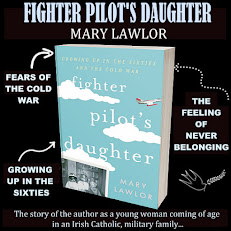



































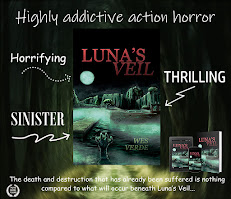










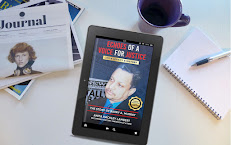



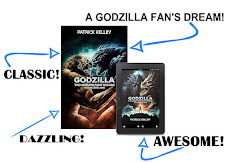
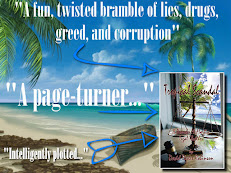

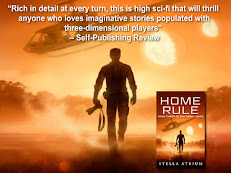



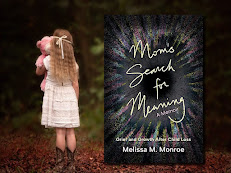
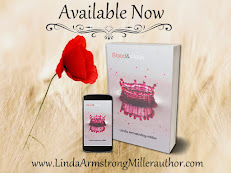


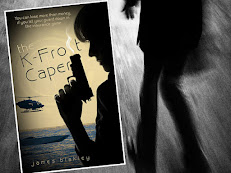
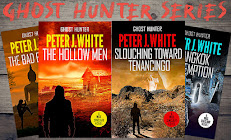
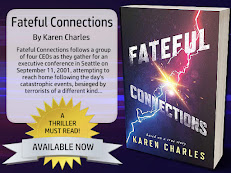
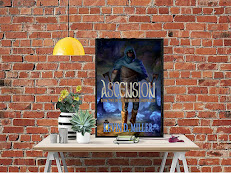






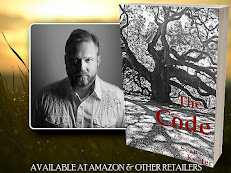



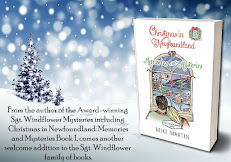
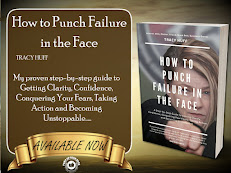

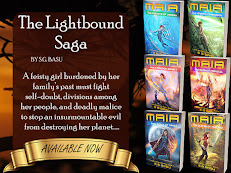
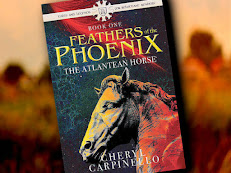
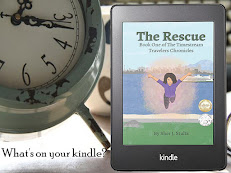

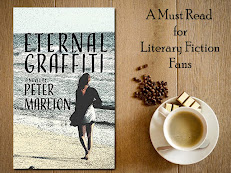
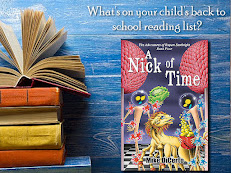

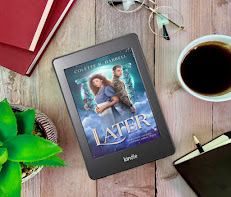

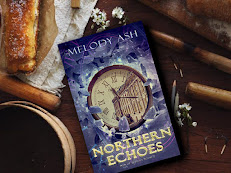

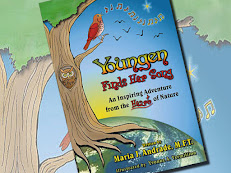




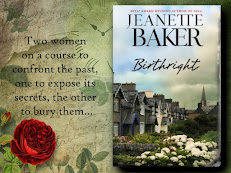
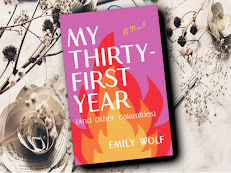
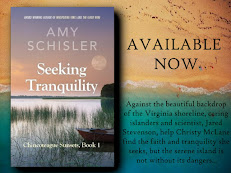
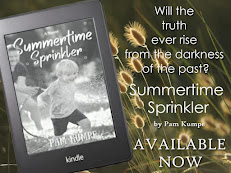

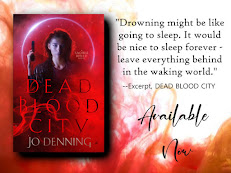


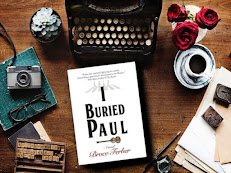
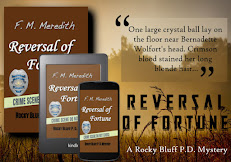
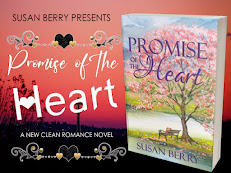

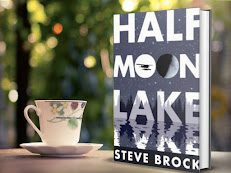
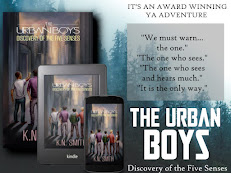
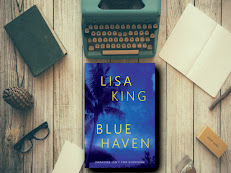

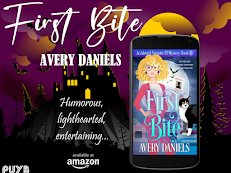

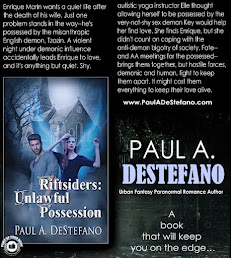

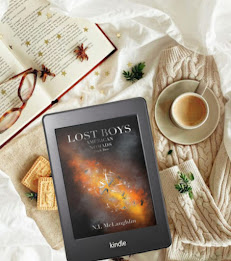
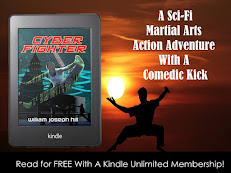




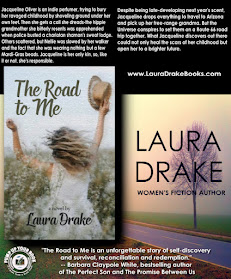



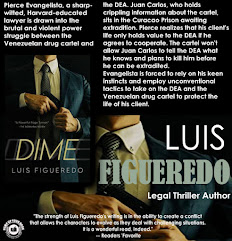























No comments:
Post a Comment